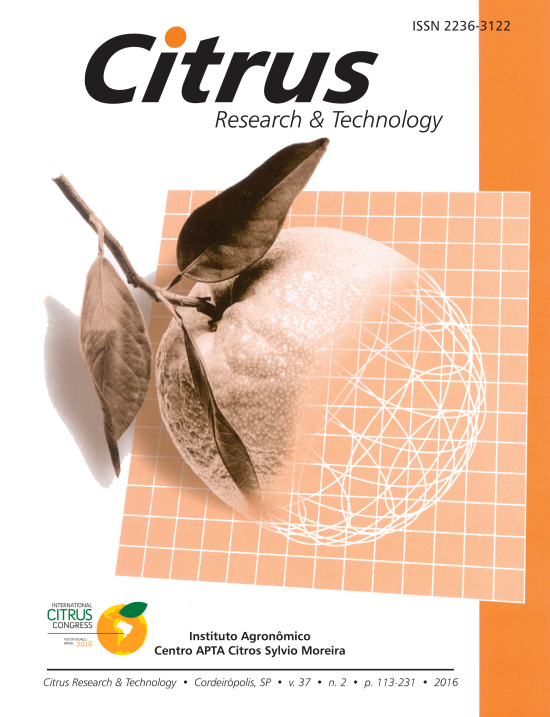Accessions of ‘Pêra’ sweet orange and related varieties
Evandro Henrique Schinor, Francisco De Assis Alves Mourão Filho, Carlos Ivan Aguilar-Vildoso & Joaquim Teófilo Sobrinho
Abstract
This research had the goal of evaluating citrus black spot (CBS) resistance among ten ‘Pêra’ sweet orange [Citrus sinensis (L.) Osbeck] selected accessions and five related varieties. Investigations were developed in a field trial in Cordeirópolis, State of São Paulo, Brazil, planted in 1980. The selected accessions of ‘Pêra’ sweet orange studied were Vimusa, EEL, IAC 2000, Olímpia 15161, Premunizada 1212, Bianchi, R. Gullo 1569/244, Dibbern CV, R. Gullo 1570/ 246 and Premunizada 1743/82, and the five related varieties were Redonda CN, Ovale 968, Ovale San Lio 969, Lamb Summer, and Corsa Tardia. A survey for the severity distribution and incidence of the disease within the plants was carried out in 1999 and 2000. The severity of the disease was evaluated using an index scale with 6 levels, whereas the incidence quantification was calculated by the percentage of fruits with symptoms. Fruit sampling in different positions in the tree canopy determined the distribution of the disease in the plant. No significant differences among the accessions regarding the severity index and incidence of the disease were detected. An increase of 19.1% in the incidence and 0.53 in the index of severity of the disease from one year to another were observed. The incidence and the severity of the symptoms of the disease are lower in fruits located 2 m above the soil. It was possible to establish an estimation of the losses caused by CBS regarding commercial value of the fruits in the fresh fruit market.

